
JULIA LEE BARCLAY-MORTON – YOGA, WATER AND REWRITING AUTISM
I interviewed writer Julia Lee Barclay-Morton about her experience of autism. Julia began as an experimental dramatist in New York, moving to the UK to
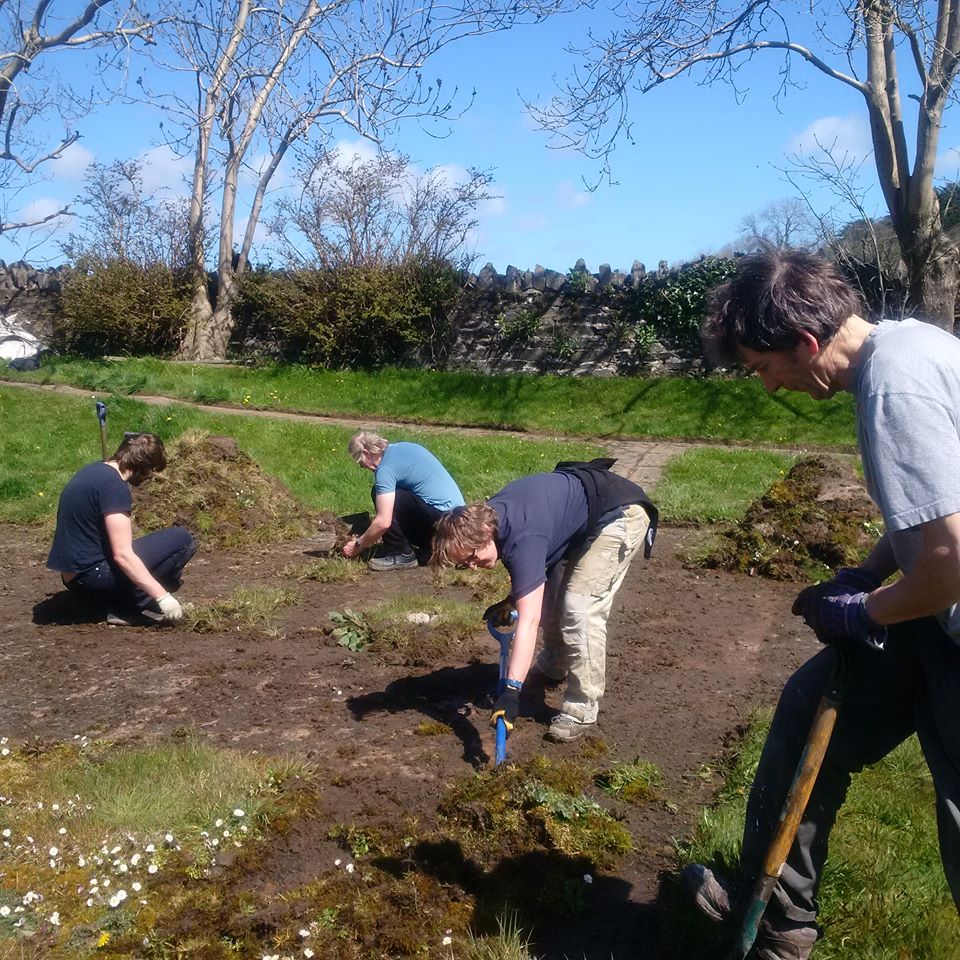
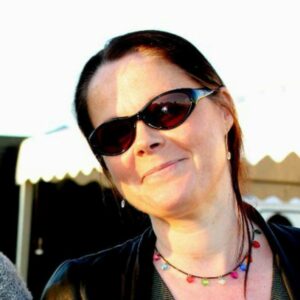
When I met Cat Turner at a Friends of the Earth Basecamp, she was full of ideas and positive energy. But what I noticed most of all was her unusual combination of expertise in financial services and sustainability. I asked her about how she’d used these skills and worked with others to create a new Green vision for the Isle of Man, where she lives.
Leslie: Can you describe your career in financial services – where your interest came from, how you became involved and how it developed?
Cat: My career in financial services started out fairly prosaically. I finished my A-levels early, at age 17, and rather than going to university wanted to ‘start my life’ straight away, at least, that was how I saw it. So I got a job, and started studying for my degree and other qualifications in the Isle of Man’s financial services sector. At the time this was pretty much the only game in town as the Island’s an offshore finance centre. I spent 30 years or so, in banking, investment, fund management, insurance/pensions and corporate and trust – this last means working with the ‘vehicles’ that businesses and wealthy people develop to plan their finances and minimise their tax payments. My focus was on developing products, and on compliance and regulation; for a while I was a policy adviser to the Isle of Man Financial Supervision Commission. I learned lots and was well rewarded, so I’m grateful for that. But it became apparent to me that I was working in a sector that felt wrong, morally, to me, and whilst on the face of it I may have looked ‘successful’ – highly qualified, high earning, high achieving – I became increasingly aware of a hollowness to it; what, in Alcoholics Anonymous, some people call ‘the hole in the soul’. It wasn’t fulfilling some need in me. I tried filling that hole in the soul with more ‘achieving’, high spending, teaching, writing books – essentially, showing off. It didn’t work.
Leslie: How did your interest in sustainability begin, grow and develop? What have you learned from those experiences?
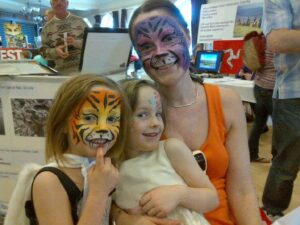 Cat: There were two catalysts. One was becoming a mother. I’m a single mum with two stunning twin girls, 9 yearolds Lizzie and Catherine. You can’t bring life into the world and remain uninterested in what state that world’s going to be in. I felt compelled to leave the place in the best shape possible for them, in my limited fashion…. The second catalyst was that ‘hole in the soul’ I mentioned. I rather crashed and burned into a deep depression, which then spiralled into alcoholism. It was a shocking time, for the girls, those who care about us, and me. I had to stop working and took a couple of years to rebuild myself – alcoholism really is the ‘great remover’. But out of the wreckage came the possibility of something good. I realised I couldn’t keep working in offshore finance, degrading other countries’ tax-takes and helping the rich stay rich by creating what were, in essence, fictions, which is how I see many ‘tax planning structures’ these days. So in the couple of years that followed my initial alcoholic implosion, I focused on surrounding myself with people and projects that helped me build a new set of values. I wanted to live a life I didn’t need to be ashamed of. As part of that I began hanging out with people who had things to teach me about spirituality, morality, environment, community and connections. They included groups like AA, Permaculture, Friends of the Earth and so on. If I hadn’t been smashed to bits by alcoholism, I wouldn’t have met these people and made the journey to where I’m now – so I have that to be grateful to my addiction for that. These groups helped me recognise the importance of connection to oneself, one another and to nature. Out of that, my interest in sustainability grew. At first I wanted to turn my back on my 30 years in finance, seeing it as part of the root of my problems. But then I realised I could put what I’d learned to good use – both in terms of skills (teaching, writing, presenting) and in terms of technical knowledge about how the economy, power systems, and financial products affect our ability to live in a sustainable, connected way – and how we perceive ourselves and our place in the world. So whilst that experience wasn’t particularly good for me personally, I can be grateful that it have me some useful tools and insights.
Cat: There were two catalysts. One was becoming a mother. I’m a single mum with two stunning twin girls, 9 yearolds Lizzie and Catherine. You can’t bring life into the world and remain uninterested in what state that world’s going to be in. I felt compelled to leave the place in the best shape possible for them, in my limited fashion…. The second catalyst was that ‘hole in the soul’ I mentioned. I rather crashed and burned into a deep depression, which then spiralled into alcoholism. It was a shocking time, for the girls, those who care about us, and me. I had to stop working and took a couple of years to rebuild myself – alcoholism really is the ‘great remover’. But out of the wreckage came the possibility of something good. I realised I couldn’t keep working in offshore finance, degrading other countries’ tax-takes and helping the rich stay rich by creating what were, in essence, fictions, which is how I see many ‘tax planning structures’ these days. So in the couple of years that followed my initial alcoholic implosion, I focused on surrounding myself with people and projects that helped me build a new set of values. I wanted to live a life I didn’t need to be ashamed of. As part of that I began hanging out with people who had things to teach me about spirituality, morality, environment, community and connections. They included groups like AA, Permaculture, Friends of the Earth and so on. If I hadn’t been smashed to bits by alcoholism, I wouldn’t have met these people and made the journey to where I’m now – so I have that to be grateful to my addiction for that. These groups helped me recognise the importance of connection to oneself, one another and to nature. Out of that, my interest in sustainability grew. At first I wanted to turn my back on my 30 years in finance, seeing it as part of the root of my problems. But then I realised I could put what I’d learned to good use – both in terms of skills (teaching, writing, presenting) and in terms of technical knowledge about how the economy, power systems, and financial products affect our ability to live in a sustainable, connected way – and how we perceive ourselves and our place in the world. So whilst that experience wasn’t particularly good for me personally, I can be grateful that it have me some useful tools and insights.
Leslie: What do you write as an author?
Cat: I’ve written quite a range of things – from study texts for people in the finance sector (everything from land law to investment management qualifications), to works for Butterworths/Elsevier on fund structures, fraud risk management and corporate governance. I’ve written works for schools (14-17 year olds) on how to become financially capable. And now I’m working on a book about how the finance system could be re-tooled to serve a more sustainable society – I’m struggling a bit with it though, because when I started writing it I was focused on how the existing structures could be adapted, but it’s becoming apparent that something much more radical and people-focused is needed. I also write a weekly column (the Green Column), and a monthly page (the EcoVannin page) on sustainability issues – a couple of examples are here and here.
Leslie: You moved from Oxford to the Isle of Man. How has that changed your life?
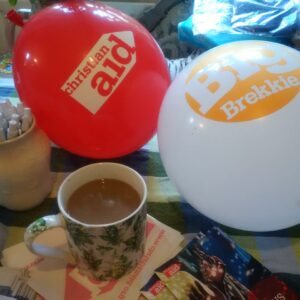
Cat: I was very small when I moved to the Isle of Man, so my formative years were really spent in an island community of (now) around 87,000 people. It’s a beautiful place, with an amazing environment but its economy has for the past few decades been geared towards offshore finance, and latterly, increasingly, online gaming – not the most sustainable or responsible of industries. They contributed to around 30 years of economic growth, but have led to an over-dependence on these industries, and some social problems. There’s a widening equality gap and a need to diversify into more meaningful jobs that make a more positive, fairer contribution to a changing world. So the fact that I was raised in the Island meant I had a different experience, and different opportunities, than I might have had if my family had stayed in the UK. I’ve had the chance to travel a good deal, both for work and pleasure, but having the island as a base has been very centring.
Leslie: What is Ecovannin, and your role in this Isle of Man organisation?
Cat: Ecovannin is a partnership between thee of the Isle of Man Government’s departments, and three green groups based on the island. It aims to bring about more sustainable behaviour on the island, for the benefit of the environment, community and economy. We’ve initiated projects in everything from better business practices, the set-up of a community garden, and wellbeing initiatives around the island.
Leslie: Could you describe what you’re doing about wellbeing, green lanes and biodiversity in the Isle of Man?
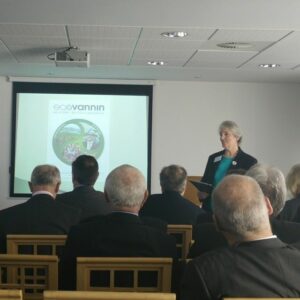
Cat: In terms of wellbeing, EcoVannin worked with Friends of the Earth in the UK, and the Network of Wellbeing to bring a week of Wellbeing Workshops to the Island. They were absolutely tremendous! Dr Larch Maxey of NOW helped us run the programmes, giving people the chance to reflect on and share ideas about what really makes for a good life in our community. We also presented to our parliament, stressing the need to measure and focus policy on what matters to their electorate. The workshops in Ramsey, Douglas, Port Erin and Peel were jam-packed. The mix of people who came was heartening – business people, entrepreneurs, the retired, concerned parents, the comfortably-off, and people on low incomes or wrestling with difficult circumstances. It was also great that local authority representatives took the time to come to the public meetings, and participate with their constituents. Over the week, around 500 suggestions were put forward – on what ‘wellbeing’ means generally and more specifically on how we can make the island more conducive to a good life. The themes that people chose to group suggestions included: environment democracy/politics community food transport arts, culture economy and many more. Interestingly, most fell under community and environment. Even those under the headings of economy, politics or business had a strong social/environmental element. They included: ‘More equal, fairer society’; ‘Renewables’; ‘The chance to influence decisions that affect us’; ‘Awareness among powers-that-be that climate change has potential to spoil everyone’s quality of life’; ‘Economy: balanced socio-economic group with families, singles and retired people sharing the same community’; ‘More affordable fresh local food’ and ‘Free places to sit and socialise – not library (no talking) or coffee shops (expensive).’ When we presented to our parliament, the Tynwald, Dr Maxey asked members what they thought made for wellbeing. After a long silence, one member said: ‘Money’. That may have been intended ironically, to be fair, but interestingly at these jam-packed public meetings, not one suggested ‘money’. The nearest was ‘fairer taxation and welfare’ and ‘support independent businesses’. We’re still working on how to share the 520-odd suggestions that were made, as the groups identify ideas and projects they can help make happen. Let’s hope their representatives are listening!
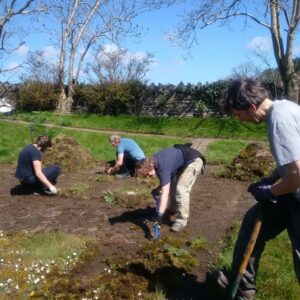
In terms of green lanes, I’m a founder member of a group called Green Lanes Our Heritage, and we campaign to try and get protection for our fragile green lanes and greenways, many of which have suffered terrible damage at the hands of off-roadsters. Our website’s here: and in recent months we’ve been focusing on taking people – including government officials – to view the damage for themselves, and liaising with them directly on action plans for change. These fragile, beautiful, often hugely historic ways are part of our cultural heritage and we don’t want them lost to future generations – we’d like to see the same types of protections as many ways have in the UK. And biodiversity? Well, as then co-ordinator of Isle of Man Friends of the Earth I was privileged to serve on our island’s Biodiversity Working Party, working with government and other interest groups to propose a strategy for compliance with the Convention on Biodiversity. It was a lot of work, but well-worth it – provided it gets implemented properly! So we need to keep the pressure on to ensure that times of austerity don’t allow our decision-makers to de-prioritise it as too ‘green and fluffy’.
Leslie: You’ve been in financial services and the environmental movement. What do you see as the differences/similarities in how people operate in these areas? Do you see any universal patterns of human behaviour based on your life experience?
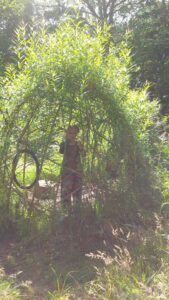
Cat: The differences are that the financial services industry – in general, this is – tends to work on what it CAN do, without much consideration for whether it ought. There are aspects of it that lend themselves to keeping people enslaved in competitive consumerism, debt, and so on. Even the laudable Sustainability Development Goals, as they apply to finance, have some applications that seem more geared to creating consumers and customers, than they do towards solving the problems of inequality. Of course, that’s not the case throughout the system – there are beacons of ethical behaviour – but in the long term we need a considerable re-engineering in how humans transact with each other and the environment and a focus on ways of sharing, not always with the expectation of recompense. Generally speaking, the environmental movement has better evolved values in terms of human interactions and responsibility, and it’s these values we need to transfer to our financial / economic systems. In terms of similarities, they’re both ecosystems, with their mechanics and participants – and very complex ones at times. So systems thinking can help understand each of them in similar ways. For example there are valuable parallels to be drawn between the various Circular Economy models, where wastage and inputs/outputs are valued and made use of. But there’s an intuitive, spiritual dimension to much (though not all) environmental endeavour. That connectedness doesn’t yet infuse the thinking of many people involved in the financial world – let’s hope we can change this!
Leslie: What gives you hope, and why?
Cat: The indomitable ability of people to find solutions. The fact that some things are as awful as they actually are – whilst things are just uncomfortable, people will be cynically weary, shrug and put up with them. You have to get to a real state of intolerance to say ‘enough!’ and energetically challenge the system. So whilst it’s painful to see the damage already done to many people’s lives, perhaps this is the shove we need to push through to a real revolution. As Khalil Gibran so over-quotedly said, ““Your pain is the breaking of the shell that encloses your understanding”. I suspect without that pain, we’d not make the changes that are needed. In AA we sometimes call it the ‘gift of desperation’. My lovely daughters, who constantly amaze me with their big spiritedness and generosity – my little Lizzie has me tearing out my front garden so we can plant fruit and veg for needy passers-by to share – she remembers what it was like when we were surviving from the local food bank, and doesn’t want others to do without fresh food. And the people I meet at places like Friends of the Earth’s Basecamp (where I met you, Leslie!) – people who don’t give up, won’t give up, want to and do make a difference, and remain resolutely true to themselves.
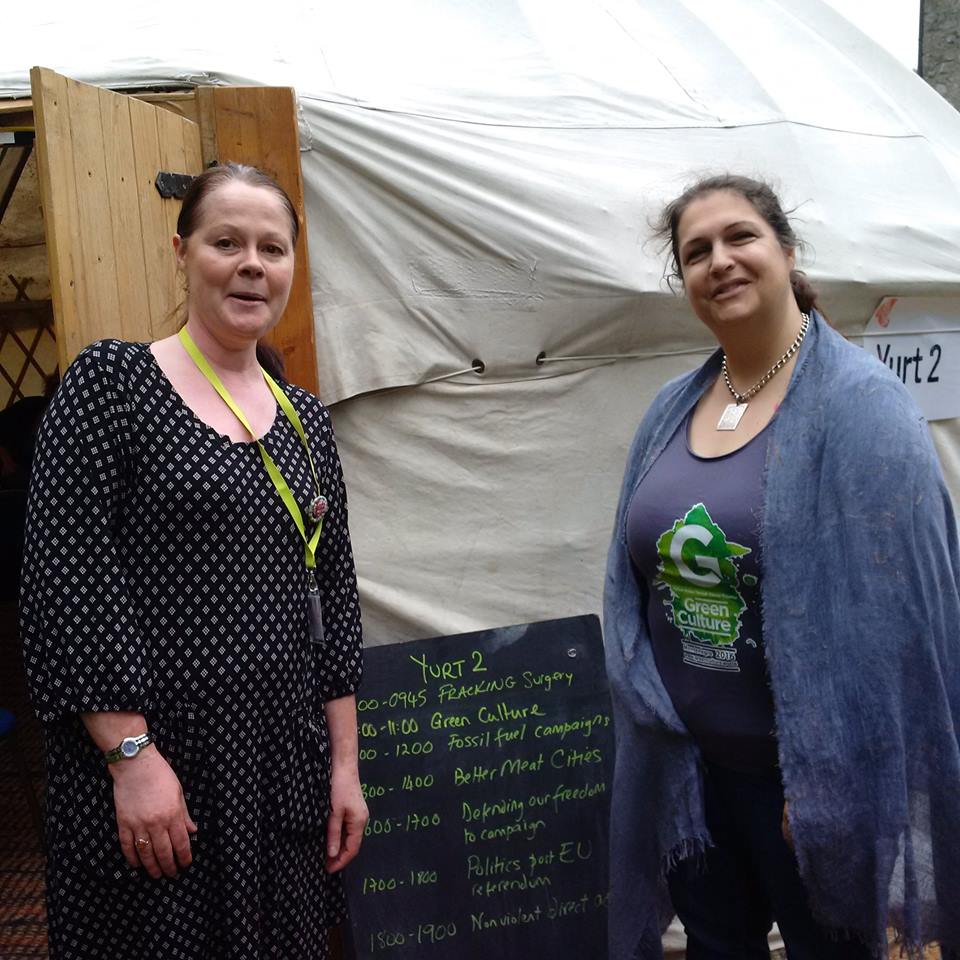
ABOUT LESLIE TATE’S BOOKS:

I interviewed writer Julia Lee Barclay-Morton about her experience of autism. Julia began as an experimental dramatist in New York, moving to the UK to

I interviewed Gillean McDougall from Glasgow, who edited the collaborative projects Honest Error (on Charles Rennie Mackintosh and his wife Margaret Macdonald) and Writing the

I interviewed French writer Delphine de Vigan, whose book, No et moi, won the prestigious Prix des libraires. Other books of hers have won a clutch

I interviewed Joanne Limburg whose poetry collection Feminismo was shortlisted for the Forward Prize for Best First Collection; another collection, Paraphernalia, was a Poetry Book Society Recommendation. Joanne

I interviewed Katherine Magnoli about The Adventures of KatGirl, her book about a wheelchair heroine, and Katherine’s journey from low self-esteem into authorial/radio success and
| Cookie | Duration | Description |
|---|---|---|
| cookielawinfo-checkbox-analytics | 11 months | This cookie is set by GDPR Cookie Consent plugin. The cookie is used to store the user consent for the cookies in the category "Analytics". |
| cookielawinfo-checkbox-functional | 11 months | The cookie is set by GDPR cookie consent to record the user consent for the cookies in the category "Functional". |
| cookielawinfo-checkbox-necessary | 11 months | This cookie is set by GDPR Cookie Consent plugin. The cookies is used to store the user consent for the cookies in the category "Necessary". |
| cookielawinfo-checkbox-others | 11 months | This cookie is set by GDPR Cookie Consent plugin. The cookie is used to store the user consent for the cookies in the category "Other. |
| cookielawinfo-checkbox-performance | 11 months | This cookie is set by GDPR Cookie Consent plugin. The cookie is used to store the user consent for the cookies in the category "Performance". |
| viewed_cookie_policy | 11 months | The cookie is set by the GDPR Cookie Consent plugin and is used to store whether or not user has consented to the use of cookies. It does not store any personal data. |